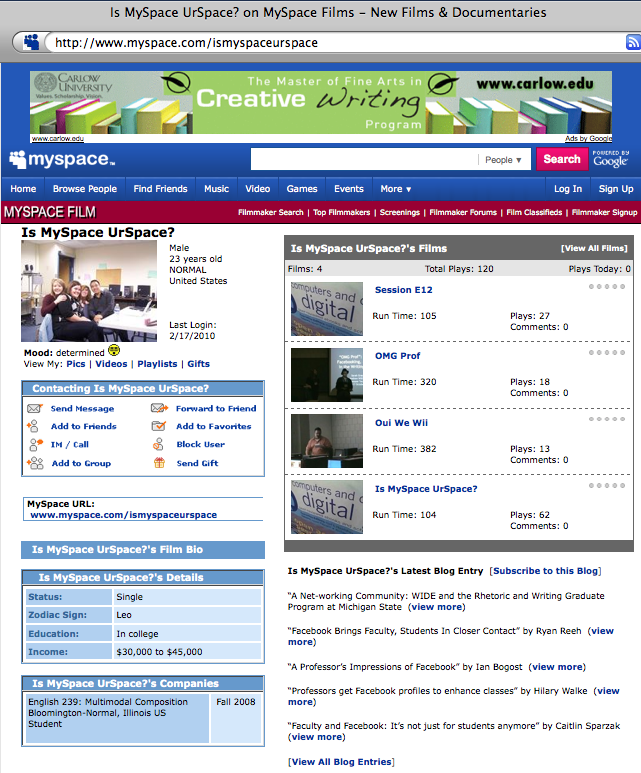Unlike most scholarly work, the page never factored into our composing processes for this chapter (borne out of our Multimodal Composition class). Instead, our goal was to capture video and audio moments from the 2008 Thomas R. Watson Conference on Rhetoric and Composition and make them into scholarly multimedia projects that showcased both the conference and our perspectives on the conference. The four group projects presented here may do more of the latter than the former, but that’s not so unexpected given that the authors
- are all upper-level undergraduate students, from several disciplines (and not all from the humanities) with no prior experience in multimodal theory,
- had no prior experience in sustained multimedia authoring (1 or 2 had done small videos on their own; 1 had blogged),
- had no experience authoring academic scholarship of any kind (either page- or screen-based),
- had no experience attending any kind of academic conference prior to attending Watson,
- had no clear understanding (at the beginning of the semester) what professors do when they “publish,”
- assumed all professors (Cheryl excluded, only due to the obvious digital course content) were “technologically illiterate,” “FaceBook haters,” and (wait for it…) “old,”
- had only eight weeks to learn the disciplinary conversations about (and audiences for) multimodal composition before Watson, and only four weeks after to complete their scholarly multimedia projects.
